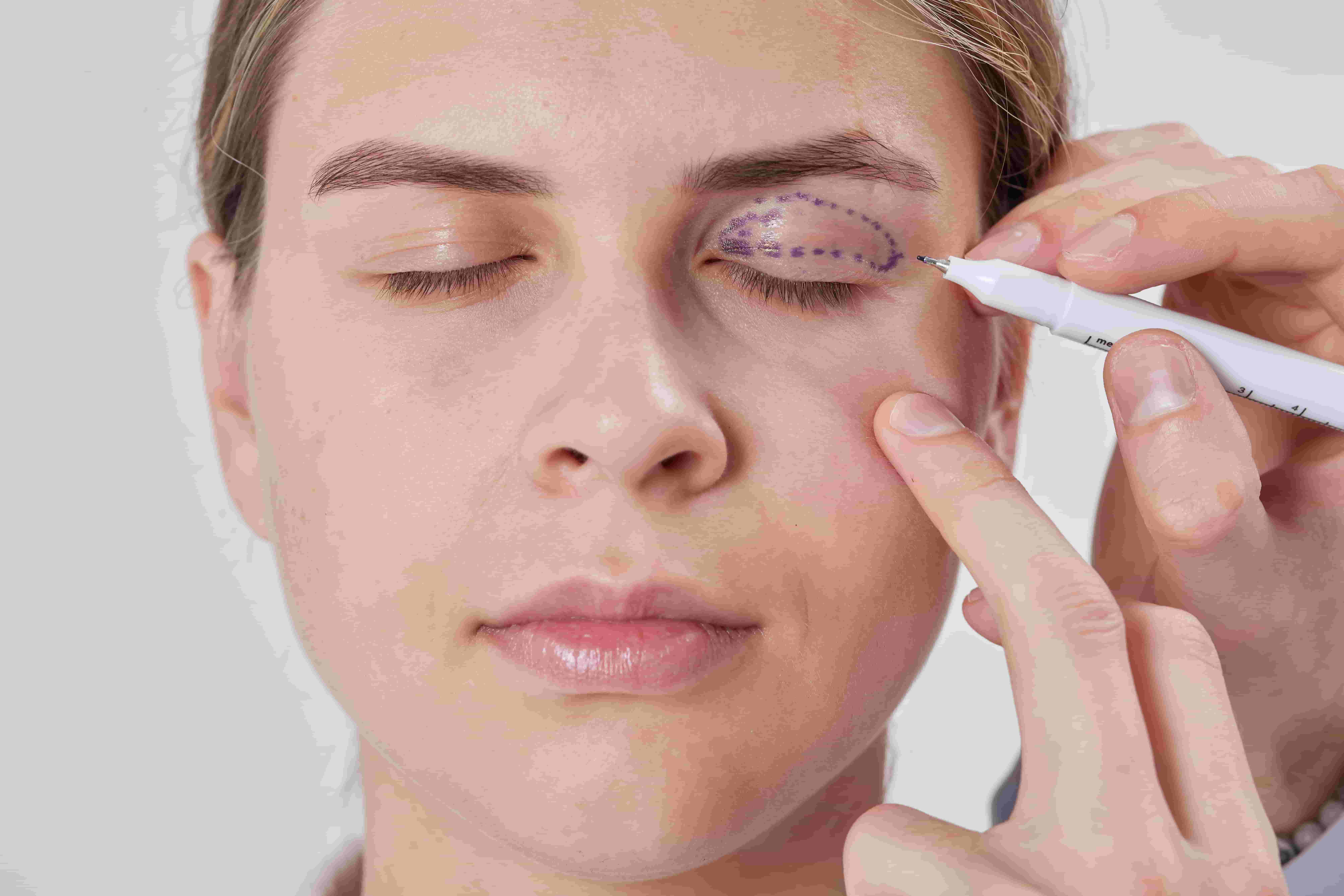Under-eye aesthetic surgery, medically known as blepharoplasty, is a surgical procedure designed to address aesthetic concerns around the eyelids. Factors such as aging, genetics, and environmental conditions can lead to under-eye bags, wrinkles, and sagging. This procedure removes excess skin, muscle, and fat, restoring a youthful and refreshed appearance.
Who is a Suitable Candidate for This Surgery?
| Suitable Candidates | Not Suitable Candidates |
|---|---|
| Individuals over 35 with eyelid sagging | People with bleeding disorders |
| Those with prominent under-eye bags and dark circles | Those with active eye infections |
| Individuals with genetically drooping eyelids | Pregnant and breastfeeding women |
| Patients experiencing vision obstruction due to eyelid sagging | Those who continue to smoke |
This procedure is commonly performed on individuals aged 40-70, but due to genetic factors, it can also be suitable for younger patients.
Under-Eye Bag Surgery and Drooping Eyelid Surgery Procedures
Lower Eyelid (Under-Eye Bag) Surgery
This procedure removes excess fat and skin from the lower eyelid. It is performed under local anesthesia or mild sedation, and patients are discharged on the same day. The surgeon makes an incision along the lash line or inside the eyelid, removes fat deposits, and trims excess skin.
Upper Eyelid and Droopy Eyelid (Ptosis) Surgery
Upper eyelid sagging is corrected by tightening the levator muscle or removing excess skin. If ptosis (eyelid drooping) is present, the levator muscle is tightened to lift the eyelid.
| Procedure | Duration | Anesthesia | Incision Location |
|---|---|---|---|
| Lower Blepharoplasty | 45-60 minutes | Local/Sedation | Under the eyelashes or inside the eyelid |
| Upper Blepharoplasty | 30-45 minutes | Local/Sedation | Eyelid crease |
| Ptosis Correction | 45-60 minutes | Local/Sedation | Inside or outside the eyelid |
Post-Surgery Recovery and Care Tips
Swelling and bruising typically begin to subside within 7-10 days, and full recovery takes around 4-6 weeks.
Tips to Speed Up Recovery
- Cold Compress: Apply ice packs every hour for 10 minutes during the first 48 hours to reduce swelling.
- Keep Your Head Elevated: Sleep with two pillows to keep your head elevated in the first week.
- Avoid Strenuous Activities: Refrain from lifting heavy objects and exercising for at least two weeks.
- Protect Your Eyes: Wear sunglasses to shield your eyes from external factors.
- Avoid Blood Thinners: Medications like aspirin and ibuprofen can increase bleeding risk.
Possible Risks and Complications
As with any surgery, under-eye aesthetic procedures carry some risks. However, proper surgical techniques minimize these risks.
| Possible Complications | Prevention Methods |
|---|---|
| Mild bleeding and infection | Use antibiotics and maintain sterile post-op care |
| Temporary dry eyes | Apply artificial tear drops |
| Difficulty closing the eyelid fully | Ensure proper surgical technique and follow-up |
| Minor asymmetry | Usually resolves after swelling subsides |
Non-Surgical Alternatives for Under-Eye Aesthetics
For patients who prefer to avoid surgery, there are minimally invasive treatments available, though these provide temporary results.
| Method | Duration of Effect | Purpose |
|---|---|---|
| Under-eye filler (tear trough filler) | 6-12 months | Volume loss and dark circles |
| Laser skin resurfacing | 1-3 years | Wrinkles and sagging |
| PRP (Stem cell injection) | 1-2 years | Skin rejuvenation |
| Botox | 4-6 months | Crow’s feet wrinkles |
These non-surgical methods can help reduce aesthetic concerns around the eyes without the need for surgery.









